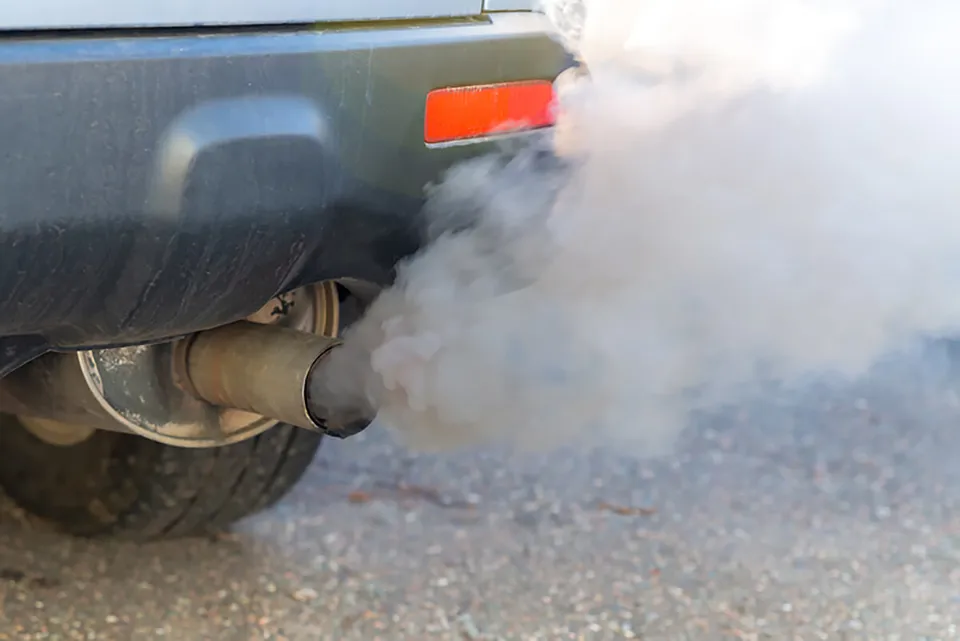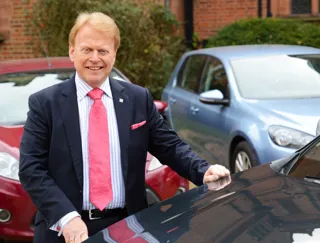New petrol and diesel cars and vans will not be allowed to be sold in the UK from 2030, the Government has confirmed.
It has, however, said that it will allow the sale of hybrid cars and vans that can drive a significant distance with no carbon coming out of the tailpipe until 2035, suggesting that the five-year extension will only apply to plug-in hybrid electric vehicles (PHEVs). Read latest update here.
The Government had previously announced it would end the sale of internal combustion engine (ICE) cars and vans by 2040.
However, in announcing a 10-point plan to tackle climate change and create new ‘green’ jobs, Prime Minister Boris Johnson confirmed the Government was bringing forward the ICE ban.
He said: "Although this year has taken a very different path to the one we expected, I haven’t lost sight of our ambitious plans to level up across the country. My 10-point plan will create, support and protect hundreds of thousands of green jobs, whilst making strides towards net zero by 2050.
"Our green industrial revolution will be powered by the wind turbines of Scotland and the North East, propelled by the electric vehicles made in the Midlands and advanced by the latest technologies developed in Wales, so we can look ahead to a more prosperous, greener future."
To support the ban being brought forward to 2030, the Prime Minister has announced: £1.3 billion to accelerate the rollout of charge points for electric vehicles (EVs); £582 million in grants for those buying zero or ultra-low emission vehicles (ULEVs); and almost £500m to be spent in the next four years for the development and mass-scale production of electric vehicle batteries, as part of the Government's commitment to provide up to £1 billion into manufacturing bases including in the Midlands and North East.
The British Vehicle Rental and Leasing Association (BVRLA) welcomed the Government’s decision in taking a phased approach to ending the sale of petrol and diesel car and vans but warned that setting dates is only the start of the process.
BVRLA chief executive Gerry Keaney says that the “extremely aggressive” phase-out of petrol and diesel vehicles would be embraced by “many drivers and fleet operators”, adding that the 2035 extension for hybrids would provide an “essential lifeline” for those facing a greater zero-emission challenge.
He added that vehicle rental companies and van fleet operators will be very relieved to have this additional breathing space, but will need clarity on exactly what types of hybrid are in scope.
“Setting these phase-out dates is just the start of the journey, now the Government needs to create the supportive environment that will enable fleets and motorists to step up to the challenge of decarbonising road transport,” he said. “It won’t be easy, and it won’t be cheap.”
Zenith says that battery electric vehicles (BEVs) currently account for around a third of its new car orders.
Alan Bastey, customer relationship director and EV specialist at Zenith, said: "The Government’s announcement on the ban of petrol and diesel vehicles by 2030 and hybrids by 2035, is a welcome confirmation and will help businesses focus on their future mobility requirements. It means the change is only two or three fleet cycles away for the average company.”
Moving to an electric vehicle can be daunting for drivers, explains Bastey, so companies need to design a policy that helps to inform employee choice and remove the perceived barriers. “We see that engagement and education are pivotal to successful uptake,” he said.
The Department for Transport (DfT) launched a consultation in February on bringing the diesel and petrol ban forward from 2040 to 2035 or earlier and to include hybrids for the first time. That consultation closed on July 31 and the Government had been considering the responses before making this announcement.
Zenith is working with customers to help them manage the transition to BEVs and ensure that the mix of vehicles is appropriate to their business requirements.
It says fleets are seeing the long-term financial benefits of BEV and helping employees to make the switch. It considers a typical annual mileage for a BEV of 8,000 to 10,000 miles.
While electric vehicles are often more expensive in rental costs, the savings obtained from fuel and employer's NI can usually offset the higher rental.
Zenith said companies should also consider that low emitting cars have further corporation tax benefits as they are not subject to lease rental restriction and a lower 6% capital allowance rate. It will be even more relevant from April 2021 when the threshold for these benefits is lowered to 50g/km from 110g/km.
UK automotive trade body, the Society of Motor Manufacturers and Traders (SMMT) said it shared the Government’s ambition for leadership in decarbonising road transport.
“Manufacturers have invested billions to deliver vehicles that are already helping thousands of drivers switch to zero, but this new deadline, fast-tracked by a decade, sets an immense challenge,” said SMMT chief executive Mike Hawes.
"We are pleased, therefore, to see Government accept the importance of hybrid transition technologies – which drivers are already embracing as they deliver carbon savings now – and commit to additional spending on purchase incentives.
“Investment in EV manufacturing capability is equally welcome as we want this transition to be ‘made in the UK’, but if we are to remain competitive – as an industry and a market – this is just the start of what’s needed.
“Success will depend on reassuring consumers that they can afford these new technologies, that they will deliver their mobility needs and, critically, that they can recharge as easily as they refuel. For that, we look to others to step up and match our commitment.
“We will now work with Government on the detail of this plan, which must be delivered at pace to achieve a rapid transition that benefits all of society, and safeguards UK automotive manufacturing and jobs.”
The BVRLA believes that there are three support areas that the Government must focus on, starting with maintaining a set of tax incentives and grants that will drive demand across all segments of the UK fleet and retail automotive market.
Research produced for the BVRLA by Cambridge Econometrics estimates that this stimulus package could cost up to £95 billion.
Secondly, electric vehicles are in high demand across the globe. The Government must ensure that the UK remains an attractive market for OEMs to sell their products, it said.
Finally, the UK needs a comprehensive strategy on charging infrastructure. This must include an adequate supply of affordable, accessible and reliable public charge points and incentives to unlock private sector investment.
EV infrastructure rollout should not be held back by arguments about who pays for upgrading the local electricity network and how this work is prioritised, concluded the BVRLA.
Concerns around charging infrastructure were also the biggest perceived disadvantage to EVs cited in a recent Department for Transport (DfT) survey.
The Government has announced £1.3bn in funding to accelerate the roll-out of charge points across the UK, but recent research produced for the SMMT suggests that £16.7bn needs to be spent on public charging infrastructure alone.
The Government says it will also launch a consultation on the phase out of new diesel HGVs to put the UK in the vanguard of zero emission freight. No date has been set yet.
























The Engineer - 18/11/2020 17:32
A typical current petrol station can accommodate 15 customers at once who take 5 to 10 minutes each. Suppose you convert petrol stations into recharging stations for the millions that won't have access to home charging or on longer trips. High speed chargers up to 350kw possible so for just 3 chargers and you are looking at an astonishing 1MW supply needed, I can't imagine more if even that is feasible. And those 3 customers will still need 15 to 20 minutes each. Its easy to get a queue at current petrol stations, imagine only having a fifth of the pumps and taking 4 times longer to use! And also 350kw charging will only be on very expensive up market vehicles, no way it can be done on a cheap family EV which leaves those people with even lengthier charging stops on lower powered chargers. I don't see a Utopia but a living hell! we will become the most inefficient country in the world, a broke joke.